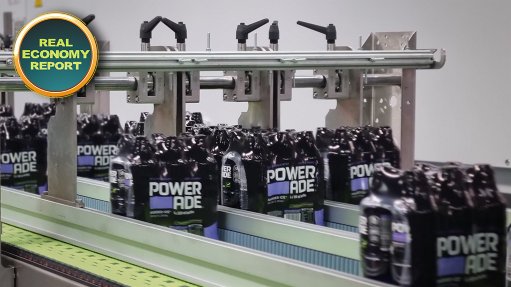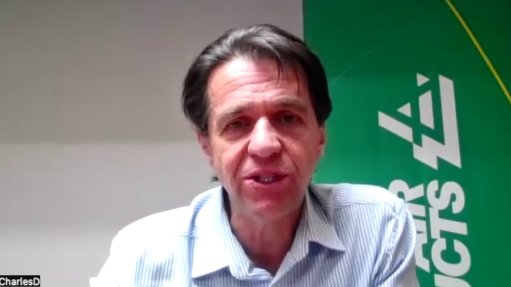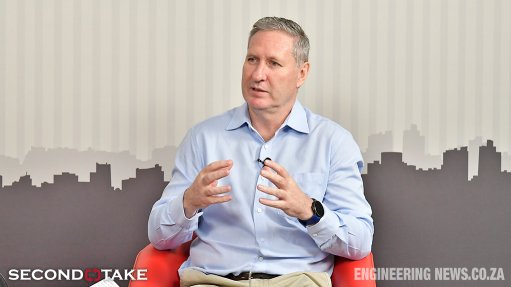A new approach is needed to solve the unemployment crisis, says CDE

The video sees CDE executive director Ann Bernstein in conversation with Engineering News, where she gives some insight into what CDE's report is about and why a labour-intensive market should be such a key focus for South Africa. Video: Kutlwano Matlala. Editing: Nicholas Boyd.
Development think tank, the Centre for Development and Enterprise (CDE), on Wednesday urged South Africa to consider “a new approach” to alleviate the country’s unemployment crisis, saying this should include actions to promote faster economic growth.
South Africa’s official unemployment rate is above 29%, but if the number of people who have given up looking for employment is included, the figure is much higher. Unemployment is also a significant challenge for the country’s youth.
A newly launched report, titled ‘Ten Million and Rising’, which was published by the CDE, shows that only 42% of adult South Africans work, marking a downward trajectory from the 46% in 2008.
Between 2008 and 2019, the number of people who want work but cannot find it or have given up looking, rose from 6.5-million to 10.3-million, with another 1 700 adults, on average, joining the labour market on a daily basis.
Of that 1 700, fewer than 500 find jobs, the report shows.
The situation is even more dire for people aged between 15 and 34. Between 2008 and 2019, the population of young people increased by 2.2-million but the number of employed persons fell by more than 500 000.
Because of this worsening situation, CDE executive director Ann Bernstein on Wednesday said the current approach to jobs “is not working and a new deal is long overdue”.
She referred to the report during a presentation, arguing that the unemployment crisis “is the deepest in the world” and has worsened “because government has failed to address [unemployment’s] underlying causes”.
These were identified as slow economic growth and labour market policies that discourage employers from hiring unskilled workers.
Bernstein said avoiding essential reforms, while focusing attention on ad hoc projects or special initiatives, “is not the answer”. Instead, she suggested that the focus be placed on what should be South Africa’s key task - the design, implementation and successful management of policy reform.
The problem has been exacerbated by years of neglect and inappropriate policies, Bernstein said, averring that “not all is lost”.
Significant progress in stimulating growth and increasing employment, if government were to adopt a package of realistic policies, could be made, she said.
For this to happen, certain conditions need to be met. “We have to grasp the depth and scale of the crisis, be honest about the causes and act with urgency to implement the necessary reforms,” Bernstein told delegates on Wednesday.
She lamented the “impasse created by endless workshops, summits and National Economic Development and Labour Council (Nedlac) negotiations”.
It was widely recognised that unemployment was high because economic growth was low, added Bernstein, explaining that this was largely because governance had been so poor.
Three other factors are also especially important: South Africa’s “multi-generational failure” to educate its workforce, the spatial legacy of apartheid which imprisoned many in poverty traps and retarded urban growth, and many bad policy choices in the last two decades.
“If we are to have any chance of turning this crisis around, we will have to get the economy growing more quickly,” she said, adding that a range of difficult, but essential, reforms would be required to do so.
These reforms include securing more generating capacity, putting South Africa’s finances on a sustainable footing, tackling the skills crisis through fundamental reform of basic education and training, as well as encouraging as much skilled immigration as South Africa can attract.
Policies that undermine property rights must also be rolled back, Bernstein noted, adding that “government will have to rethink its attitude to business, the role of markets and the size of the State”.
Growth alone would not make for a job-rich economy, she warned, stating that urgent market reforms were required and would need to be calibrated to “avoid harming the living standards of existing workers while making possible the emergence of new labour-intensive activities that use lots of unskilled workers”.
The best route to an inclusive society and less poverty was to get as many people as possible into formal jobs, Bernstein averred, adding that “a low-income job is better than having no job at all”.
Reforms that would achieve this, she indicated, would include legal exemptions for small and new firms from collective bargaining agreements to which they are not party, while rebalancing collective bargaining to ensure small and new firms were better represented.
“The existing biases of industrial policy – which work in favour of capital-intensive firms – should be reversed, while the employment tax incentive should be expanded to include more workers and for a longer period.”
In effect, she said, this would make it easier for firms to get rid of employees during their probationary periods, which would help to de-risk the employment decision.
“Government has to change the terms of debate in the country on how to achieve faster growth and on what is required to build a more job-rich economy,” she said, adding that the definition of “workers” in South Africa had to include the unemployed.
“It’s time South Africa got serious about this devastating crisis,” said Bernstein, emphasising that treading “around the edges of difficult issues or avoiding them will not result in faster growth or more employment”.
Comments
Press Office
Announcements
What's On
Subscribe to improve your user experience...
Option 1 (equivalent of R125 a month):
Receive a weekly copy of Creamer Media's Engineering News & Mining Weekly magazine
(print copy for those in South Africa and e-magazine for those outside of South Africa)
Receive daily email newsletters
Access to full search results
Access archive of magazine back copies
Access to Projects in Progress
Access to ONE Research Report of your choice in PDF format
Option 2 (equivalent of R375 a month):
All benefits from Option 1
PLUS
Access to Creamer Media's Research Channel Africa for ALL Research Reports, in PDF format, on various industrial and mining sectors
including Electricity; Water; Energy Transition; Hydrogen; Roads, Rail and Ports; Coal; Gold; Platinum; Battery Metals; etc.
Already a subscriber?
Forgotten your password?
Receive weekly copy of Creamer Media's Engineering News & Mining Weekly magazine (print copy for those in South Africa and e-magazine for those outside of South Africa)
➕
Recieve daily email newsletters
➕
Access to full search results
➕
Access archive of magazine back copies
➕
Access to Projects in Progress
➕
Access to ONE Research Report of your choice in PDF format
RESEARCH CHANNEL AFRICA
R4500 (equivalent of R375 a month)
SUBSCRIBEAll benefits from Option 1
➕
Access to Creamer Media's Research Channel Africa for ALL Research Reports on various industrial and mining sectors, in PDF format, including on:
Electricity
➕
Water
➕
Energy Transition
➕
Hydrogen
➕
Roads, Rail and Ports
➕
Coal
➕
Gold
➕
Platinum
➕
Battery Metals
➕
etc.
Receive all benefits from Option 1 or Option 2 delivered to numerous people at your company
➕
Multiple User names and Passwords for simultaneous log-ins
➕
Intranet integration access to all in your organisation



















